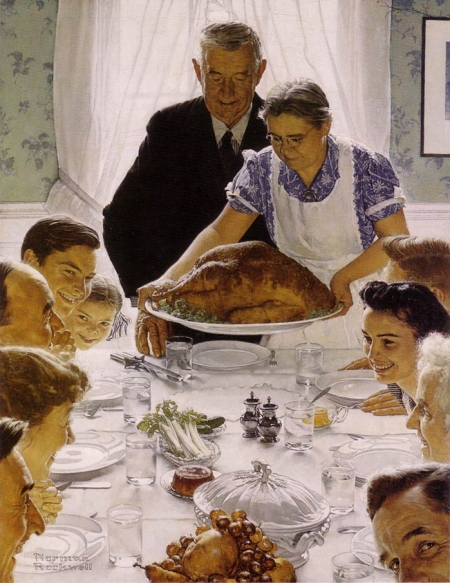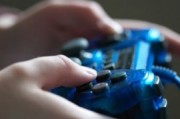Published: November 17, 2008

Image credit: iStockphoto
Pushing and punching. Spreading rumors and name-calling. Whether it’s physical or verbal, bullying has no place at school or in cyberspace.
Parents can help children not be bullied or be bulliers, but first it is important to understand why bullying occurs, said Tammy Wilgenbusch, Ph.D., a clinical psychologist with University of Iowa Children’s Hospital.
“Bullying can start at any age but it increases and then peaks in early adolescence, between sixth and ninth grades,” Wilgenbusch said. [continue reading…]
Published: November 14, 2008
 The image above, is of course, from the by the wonderful  Norman Rockwell, from his 1943 drawing “Freedom From Want.” As a graphic artist I was inspired and drew much inspiration from his wonderful evocative work.  For so many, Rockwell captured the essence of people, their actions and emotions, in a way no one else could. Often depicting “the ideal”. For many the holiday season is about family and traditions—eggnog, movies, food, caroling or just reminiscing. One of the traditions that carries from year to year might involve past disagreements and sensitive subjects. You can avoid the negativity this season with some helpful advice from Dr. Linda Enders, associate professor of human development and family studies at The University of Alabama. [continue reading…]
The image above, is of course, from the by the wonderful  Norman Rockwell, from his 1943 drawing “Freedom From Want.” As a graphic artist I was inspired and drew much inspiration from his wonderful evocative work.  For so many, Rockwell captured the essence of people, their actions and emotions, in a way no one else could. Often depicting “the ideal”. For many the holiday season is about family and traditions—eggnog, movies, food, caroling or just reminiscing. One of the traditions that carries from year to year might involve past disagreements and sensitive subjects. You can avoid the negativity this season with some helpful advice from Dr. Linda Enders, associate professor of human development and family studies at The University of Alabama. [continue reading…]
Published: November 14, 2008

Photo: Adam Filipowicz
Researchers at Stockholm University‘s Stress Research Institute published yesterday an article that describes how heart rate and sleep in boys are affected by the playing of violent video games.
The article, Playing a violent television game affects heart rate variability, was published electronically yesterday in the scientific journal Acta Paediatrica, [continue reading…]
Published: November 14, 2008

© iStockphoto
A doctoral thesis carried out at the University of Granada has proved that patients with serious anxiety disorders (panic disorder with and without agoraphobia, social anxiety disorder or generalized anxiety disorder) think they suffer more physiological (palpitations, sweating, irregular breathing, shaking of the hands and muscular tension …) than they really have. [continue reading…]




